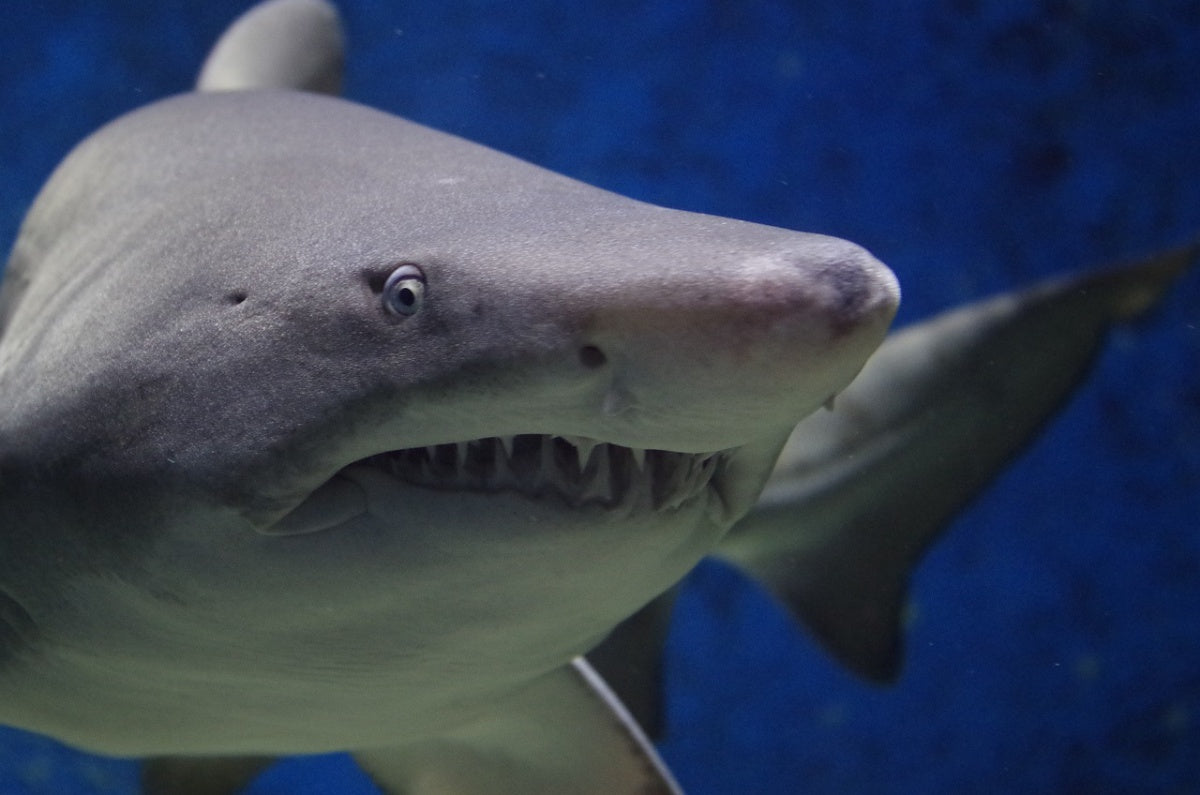10 Animals That Don't Deserve Their Bad Reputations
Elizabeth Morey
Reddit user YoungTex posed the initial question: "What animal has a terrible reputation, but in reality is not bad at all?" And a surprising number of commenters piped up to take a stand for the poor creatures of this world that everyone loves to hate.
If you've ever been blamed for something you didn't do, you have something in common with all the animals on this list. So don't be a hypocrite - give these critters the benefit of the doubt and learn why they're actually not as bad as we've always thought they were.
PLEASE NOTE: many of these creatures are not naturally aggressive toward humans but will still attack if they feel threatened. Always treat wildlife with caution and maintain a respectful distance from any potentially dangerous animal.
Here are ten animals that don't deserve their bad raps, according to Redditors. Some comments are edited for length, profanity, or grammatical errors.
Opossums
"Opossums. Despite the mean mug and demon-looking eyes, they are not aggressive at all and are generally clean creatures," says one Redditor. "AND their body temperatures are low enough that they can't contract rabies. Cool little dudes don't deserve their bad rep."
Another commenter adds, "Friendly little guys just puttering around eating trash and bugs, humans are awful to them. Be kind to the trash cats, they evolved during the Cretaceous Period, and we need to respect our elders."
Black Cats
"One of the oldest superstitions is a black cat is evil and will bring on bad luck. Black cats have the highest rate of euthanasia (74.6%) and the lowest rate of adoption (10.0%) of any color."
But as we all know, black cats are just the same as any other cat and are often very friendly and curious creatures that make splendid pets. We encourage anyone thinking of adopting a cat to consider a black shelter cat (or dog), especially an older one, because of the tendency they have to be the last ones adopted.
Sharks
"Sharks are always portrayed as killing machines when, in reality, shark attacks/deaths on humans are incredibly rare," a Redditor writes. "Many more people die from coconuts falling on their head than sharks."
Of course, we'd like to add that part of this statistic is due to how little time humans spend in sharks' domains. You certainly shouldn't go seeking a shark to find out how friendly it is. But yes, typically sharks are just as scared of humans as we are of them and aren't hunting for us the way "Jaws" makes it seem.
Snapping Turtles
"Snapping turtles. So many people are afraid to move them out of the road," one Redditor says. "Just pick them up by placing both hands on the bottom of their shell on either side of their tails. You can safely move to almost halfway up the shell if the turtle is large (I carried one the size of a literal car tire in my arms once. It wasn't happy, but it didn't attack).
"Most snappers have no interest in biting you. They'll mostly open their mouths and hiss, but as soon as you get them in the air, they'll forget about you and start moving their legs because they think they are swimming in the air. Seriously, they do. It distracts them. This is where you have to be careful not to drop them because their claws will hit your fingers as they 'swim,' and those claws are sharp."
Like most animals, snapping turtles only bite to protect themselves from humans they see as a threat. This commenter also offers advice about what to do if you do accidentally get bitten by a snapping turtle:
"If you get bitten, stroke the turtle gently up its neck and under its chin until it relaxes and lets go. But you won't get bitten. I've been working with these guys for years upon years and have yet to be bitten, knock on wood."
Wolves
"Wolves. They’re always interpreted as evil and highly predatory to humans and livestock," one comment begins. "The truth is they’re way more afraid of us than them, and attacks on humans are extremely rare. They also only go after livestock if they have no other choice.
"Of course, this is the majority cases. Wolves are fascinating in that they’re very intelligent and are closer to humans than we think. Some wolves and wolf packs are just a**holes."
Bees
"Kids are often scared of bees (adults too) because they sting, but bees are absolutely vital to growing fresh fruit."
Another commenter writes, "Bees are harmless. Just a bunch of workers, looking for nectar. Wasps, hornets, and yellow jackets, on the other hand: They're bastard-coated bastards with a bastard filling."
But in a fitting twist, another Redditor chimes in to stick up for the vespids: "Most wasps and hornets are not very aggressive. They only go wacko when you go near their colony. They also play an essential role in the ecosystem, killing and eating a lot of very harmful insects like caterpillars, grubs, and termites."
Spiders
"Spiders. They rarely bite people. And they catch insects that get into your home."
Another commenter adds that even in Australia, where everyone thinks the really scary creepy-crawlers lurk, there are "only a couple you really need to worry about" and the other spiders "are great for catching annoying insects and actually deadly spiders."
Snakes
"Snakes. The Christians blame pretty much everything on them, and most other people think they are disgusting or scary," one Redditor complains. "In reality, they are just some lil (or huge) guys that slither around all day and have a funny tongue."
Someone else writes, "They don't chase you, they aren't out to get you, they're not evil. They have a defensive mechanism and really just want to be left alone."
And in regards to the stories of snakes eating pets and small children: "Snakes eat one large meal every couple of days, then hunker down and don't eat for a while. If your snake is hungry enough to catch your chihuahua, you're not feeding it. Long story short, people with 'violent' snakes are abusing their animals."
Vultures
"Basically natures trash collector," according to one Redditor.
Another comments, "Fun Fact: The pH level of their stomach acid is the lowest of any animal in the animal kingdom. Its acidity is so strong it can dissolve any organism, bones and all, which helps prevent the spread of diseases!"
Alligators
"Alligators. The chances of being attacked by an alligator are smaller than you think, and they are less aggressive to humans than crocodiles (especially the saltwater and Nile crocodiles). Crocodilians in general are also very important to their ecosystems."
That comment garnered this reply: This. Alligators are incredible creatures. Just follow the two essential rules: no small children or animals by the shore, and especially do not have them by the shore at dawn or dusk. If you follow those two rules, alligators are great neighbors, and your odds of having a hostile encounter with one are slim to none. Source: grew up on a lake in Florida, have swam with alligators many times."
Do you have an animal to add to the list? We think if you stopped to think about it for a while, you'd actually realize that the vast majority of animals that have been pegged as bad or harmful or dangerous are actually just doing what mother nature has made them evolve to do. All animals want basically the same things: food, water, shelter, safety from predators, etc., and they do what they have to do to get and keep those things.
As commenter wasntNico writes, "None of them are 'bad' - they are just doing their thing :)"

Elizabeth Morey graduated summa cum laude from Aquinas College in Grand Rapids, MI, where she dual majored in English Literature and Spanish with minors in Writing and Business Administration. She was a member of the school's Insignis Honors Society and the president of the literary honors society Lambda Iota Tau.
Some of Elizabeth's special interests include Spanish and English linguistics, modern grammar and spelling, and journalism. She has been writing professionally for more than five years and specializes in health topics such as breast cancer, autism, diabetes, and Alzheimer's disease. Apart from her work at GreaterGood, she has also written art and culture articles for the Grand Rapids Magazine.
Elizabeth has lived in the beautiful Great Lakes State for most of her life but also loves to travel. She currently resides a short drive away from the dazzling shores of Lake Michigan with her beloved husband.
































